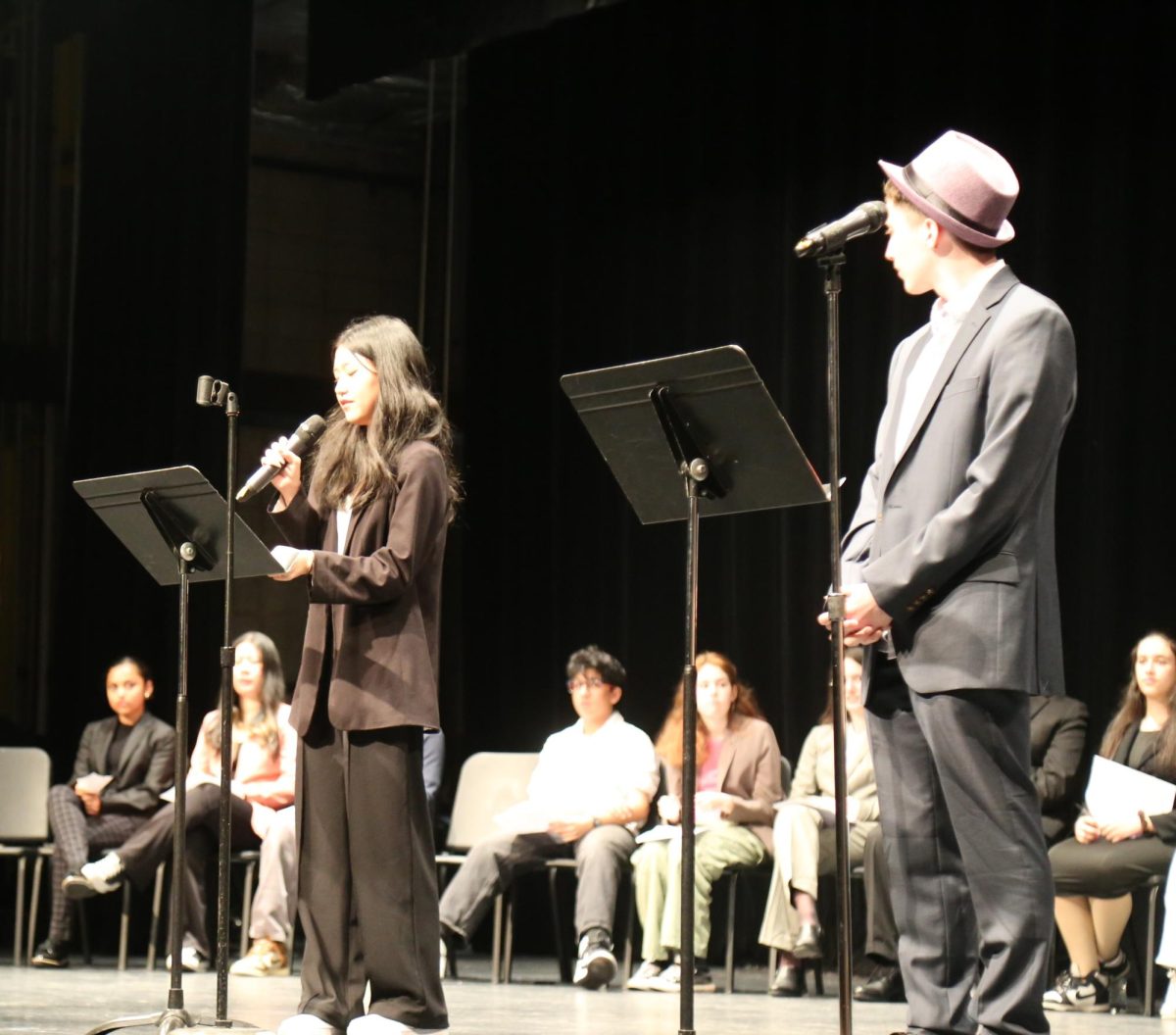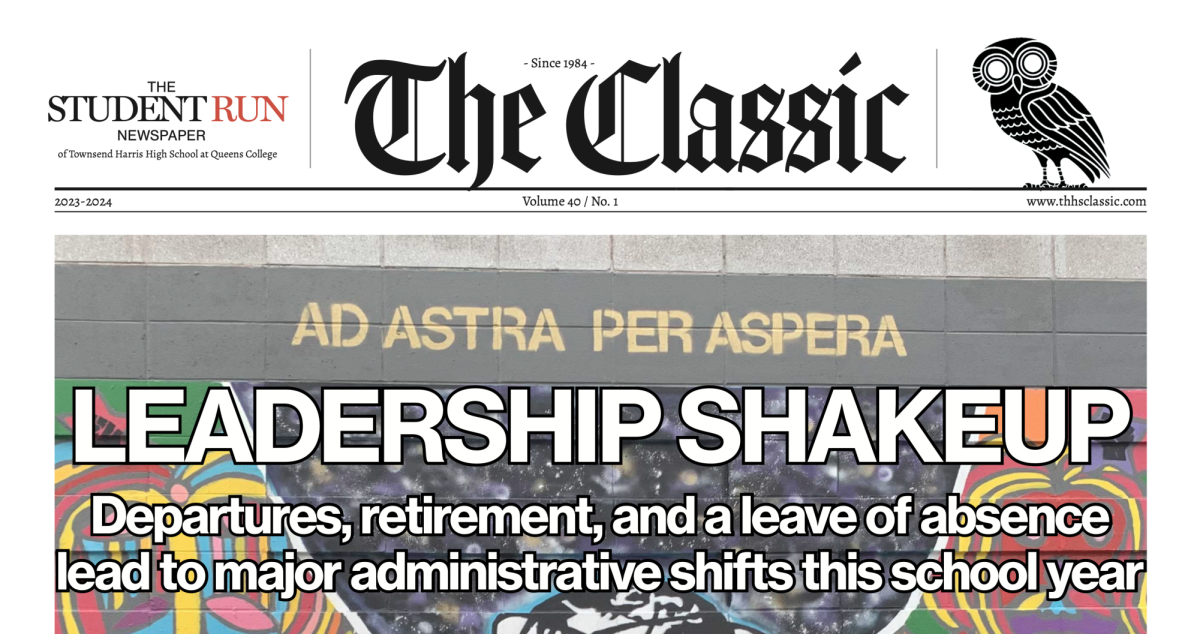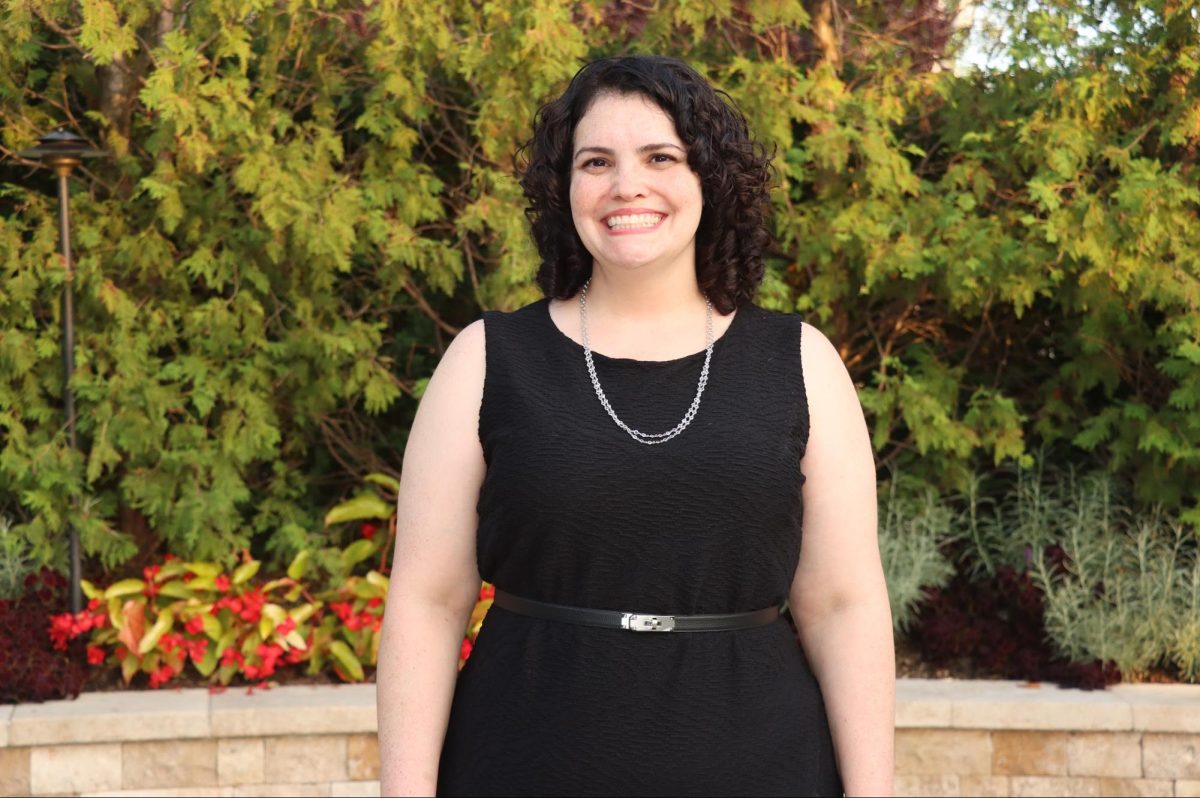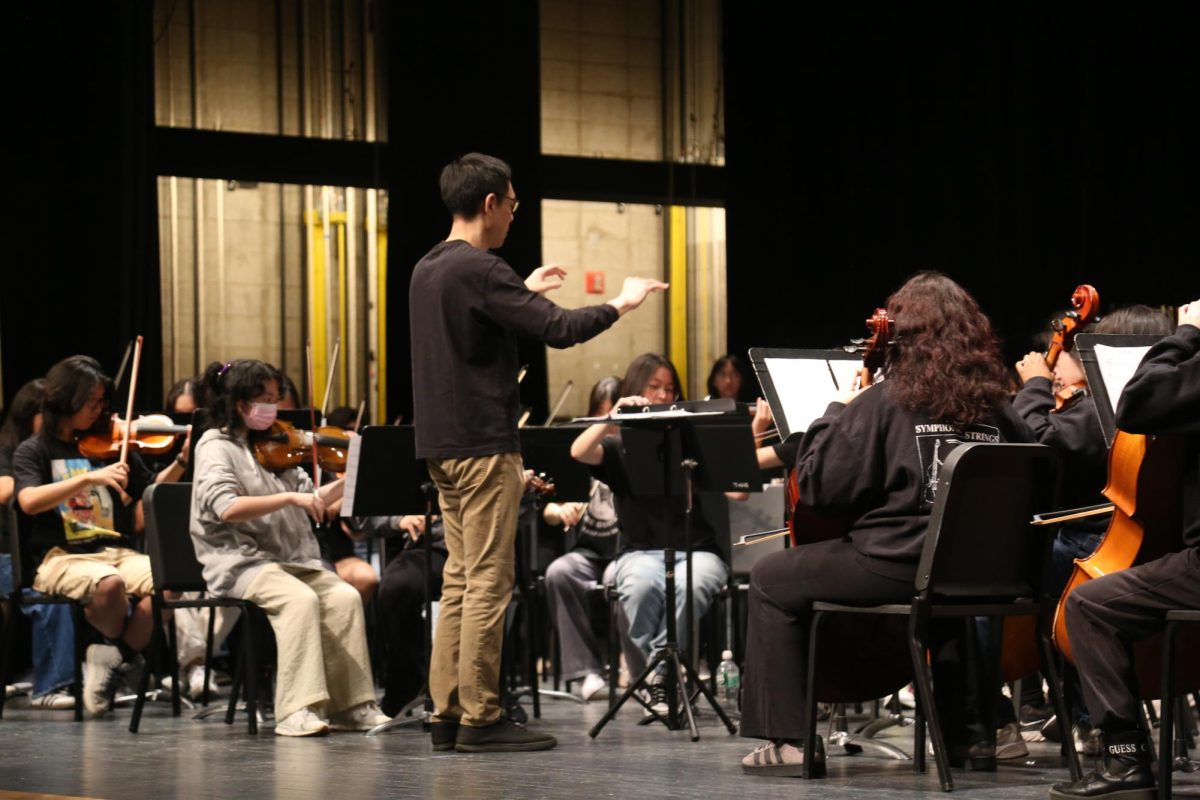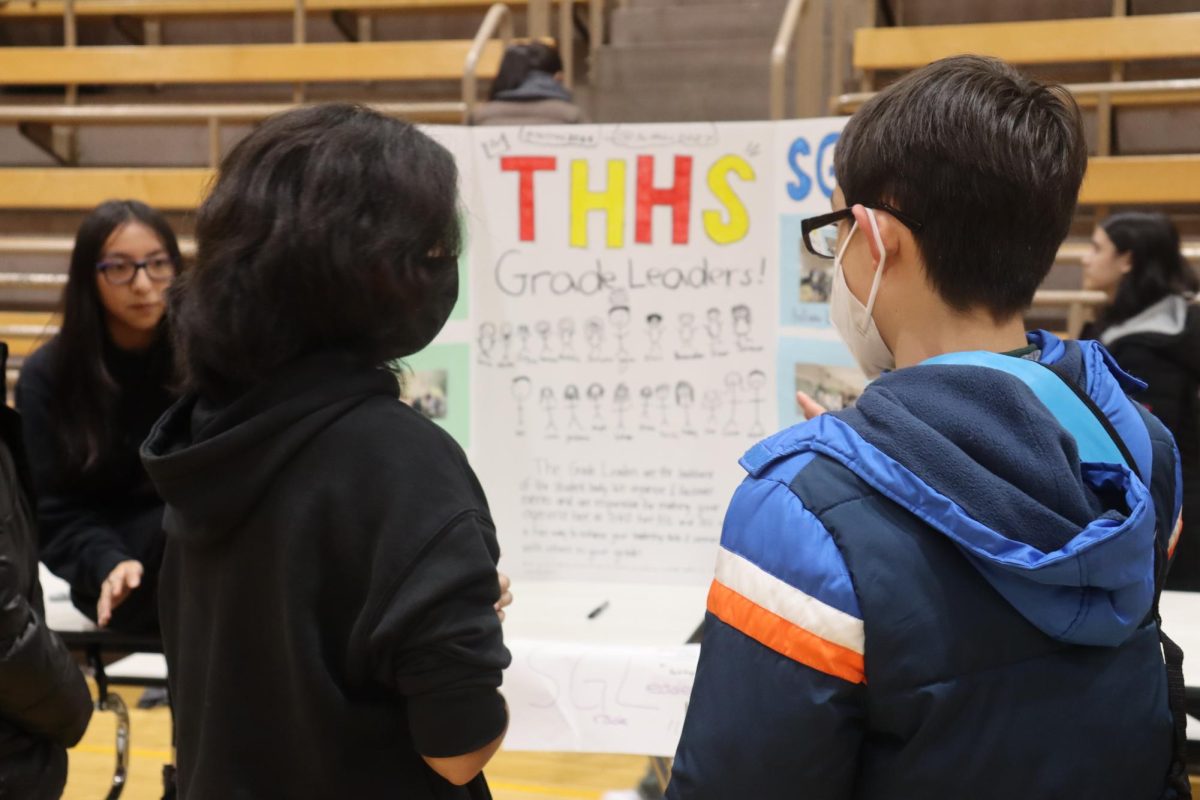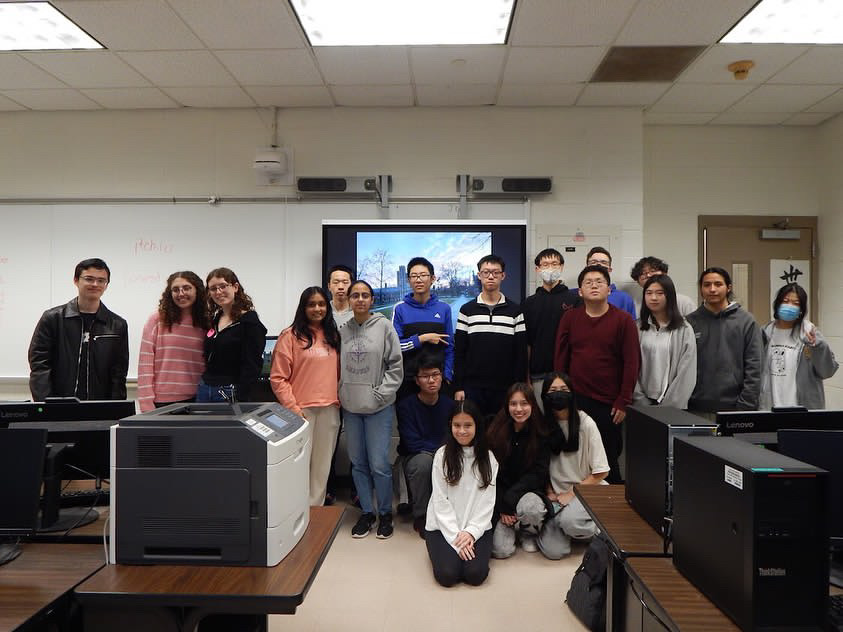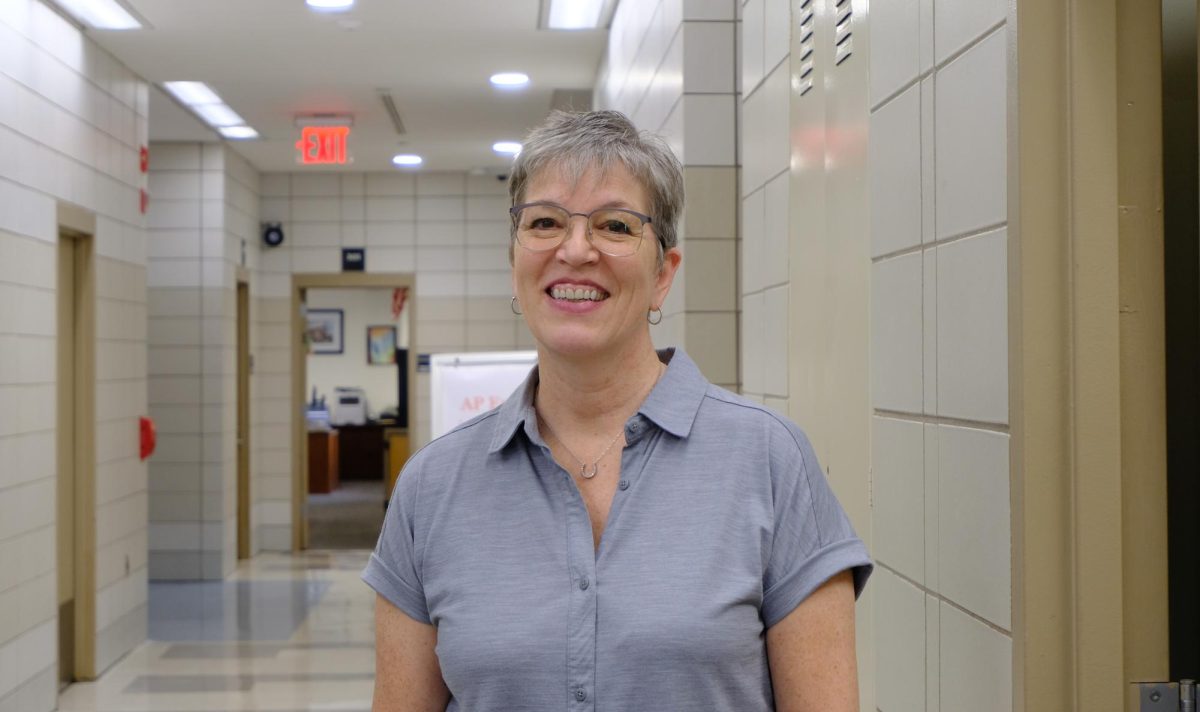
On November 20, The New York Post published an article on allegations of sexual misconduct against former English teacher Joseph Canzoneri. Five days earlier, in Long Island’s Babylon School District, multiple graduates of Babylon High School addressed a school board meeting and made allegations of sexual misconduct against teachers in the district. The graduates came forward after they learned that in October a teacher at the school had been removed due to “disturbing allegations.” By the end of the hours-long board meeting, five additional teachers were placed on paid leave and put under investigation.
As the news of sexual misconduct allegations at Townsend Harris unfolded, Phil Boyle, the state senator who represents Babylon, reached out to The Classic, writing the following on a Facebook post: “Sadly, we are experiencing a very similar situation in a school district out here named Babylon. I believe that this problem with sexual predators among our teachers is much more pervasive than we know, and we must act immediately to protect all students.”
The Classic contacted State Senator Boyle and asked to speak to him further about the issues at both schools. Senator Boyle agreed and The Classic’s interview is below. It has been condensed and edited for clarity.
Q: Could you expand on the statement you posted on Facebook? What makes you say the problem of educator sexual misconduct might be “much more pervasive than we know”?
A: I had just recently read the article in The New York Post about your great reporting and what you found out at Townsend Harris High School, and I also heard about a case in Upstate New York, and everything had hit in the district I represent, the Babylon School District. One young woman had come forward about having been groomed by a teacher for years. We had a school board meeting, and normally you might see 50-75 people attend. This school board meeting had 200 in attendance live, Zoom cut them off at a thousand online, and then there were probably several hundred more who couldn’t get on. We’re talking about like 1500 people who wanted to attend this because they were so concerned about the story of the young lady who had suffered sexual misconduct by a teacher for years.
At that school board meeting, five women came forward, some who had graduated ten years ago, and told their stories. It has been a major story here obviously. Assemblyman Mike Durso and I announced a press conference to call for the New York State Attorney General to do the investigation. So we were going to have the press conference at noon, at 9:30 that morning Letitia James, the attorney general, announced she was doing the investigation, so something says that we probably had something to do with that. From my perspective, it all started with reading the article about your story and investigation in The Classic, and I commend you for it.
Q: Could you provide us with some more thoughts about what is going on in the Babylon School District? What do you believe is at the heart of the problem?
A: I think the problem is that sometimes the school administration doesn’t take it seriously enough. They get complaints and reports and wipe it under the rug or want it to go away, and the cost of that is these issues are not addressed. I think the most heartbreaking story that I heard from talking to some of these young women and listening to their stories and reading their letters was that there was one young woman who had been groomed from the age of 16 to 18 by a teacher. He then had sexual relations with her. She graduated and moved on, and four years later, he did the exact same thing to another woman. This is someone who should have never been a teacher, never gotten anywhere near a school, was not doing the right thing with protecting his class. He was more of a predator who got away with it for years. And even after reports had surfaced of him doing things like that, there really were no serious ramifications for him professionally or criminally. In my mind, it should be criminal.
And to get back to the issue of statewide implications, I do think this happens in a lot of different school districts, certainly throughout Long Island, New York City, and Upstate New York, and probably throughout the country. That’s why Assemblyman Durso and I asked for the State Senate and the State Assembly Education Committees to hold hearings so we can have people come testify. If that happens, we’d love to have you come testify about what you found out at your school so we can look at a model to say let’s change the law so this will never happen again and students are protected and can learn without worrying about anything else.
Q: On the topic of inaction with the school district and administrators: is it a personal choice that the administrators make or is it more of a case where they are perhaps restricted by privacy laws or policies?
A: That’s a great question. I think it’s a little bit of both to be perfectly honest. I think there are some administrators who just want it to go away and they don’t want it to cut to the surface while they are serving as superintendent. Understand, a lot of these superintendents, they do the job for three or five years, make a tremendous amount of money, they have their pensions set, and then they retire or they move to another school district. The laws overprotect teachers, I believe.
I’ve been in the legislature now for 25 years and I’ve seen several versions of the 3020a law to protect teachers. Teachers are due rights. There’s no question about it. They should have due process. But sometimes these rules go so far in protecting the teacher, we see instances where they have sexual misconduct towards a student and they’re taken out of the room but still come back, as you saw at your school. Even in the case in Babylon, where there was a tennis coach that a number of young women had complained about. They said “well you can’t teach tennis anymore. You can still be a teacher around the students every day, but you just can’t be a tennis coach.” Ultimately, he was even taken away from doing regular classes in the school district and he was sent to teach as an aid for special needs students. There’s ways they can keep perpetuating this but always allow them to stay in a situation where they are around students, and that needs to stop. I think they should be fired, if not criminally prosecuted myself.
Q: News reports indicate that some of the teachers at Babylon weren’t removed until the school-board meeting occurred. Could you just confirm that and comment on these circumstances.
A: I can’t speak to the schedule for each of these teachers and what happens in the chronology of their individual cases. I can say that when an allegation like this is brought forth, they should be removed from the classroom. In New York City, obviously they have the rubber room, where the teachers are taken out of the room, even if they are paid while their due process system goes through. That’s fine. They should do the same out here in Long Island, and any school district in New York State. They should say “this is a serious allegation, and we’re going to investigate it. But in the interim, while we investigate this case, you’re not going to be anywhere near students.” That’s what I’d like to see. These are things I’d like to bring forth in the hearings for any potential legislation. I do think we have a good chance at passing legislation to further protect students this year, and I hope you play an important part in it.
Q: When you talk about legislation, are you referring to making changes to education law 3020a or do you have other ideas?
A: Yeah, that’s the big one. One of the young women that [came forward] is a NYC police officer now. She suffered from sexual misconduct from a teacher when she was in school and we’ve been talking to her about changing the criminal laws actually, the New York State Penal Code. Something along the lines of – I don’t want to give it all up because we’re going to announce this and we’ll certainly let you know right away when we do this – but some kind of anti-grooming law. Whether it’s a time frame or something like that saying that teachers cannot have contact with a student or former student, but we have to work on the language. Obviously these bills take a little time to get the perfect language. But, we’re hoping to do it in the new year right after January when we start a new session in Albany. We’ll be informing you about what we’re going to do and when we’re going to do it.
Q: In 2019, you voted to pass the Child Victims Act, which changed the statute of limitations for criminal proceedings and civil proceedings for people who were victims of sexual misconduct from adults when they were children. Education law 3020a states that “no charges…shall be brought more than three years after the occurrence of the alleged incompetency or misconduct, except when the charge is of misconduct constituting a crime when committed.” We have been researching this issue because we think that it may allow for sexual misconduct that is not necessarily criminal when it occurs to be dismissed as a cause for firing if the allegation is made three or more years later. The Child Victims Act came about in part because it recognizes that sometimes it takes time for victims to come forward. Does 3020a need a similar shift when it comes to the “three years rule” in place now?
A: Absolutely. I think that statute of limitations needs to be expanded much like the Child Victims Act. We also have another bill called the Adult Victims Act, which has not been passed yet, which as you know, some people that are victims of sexual assault sometimes they either repress or they’re not ready to come forward until years later. That is certainly the case of a victim in our schools as a student being preyed upon by a teacher. If a victim doesn’t come forward until ten years later – we had a couple of women speak at the school board meeting that it happened ten years ago to them or eight years ago, well those teachers were still there and they can’t say sorry it’s too late because those three years have passed. They should be fired and gone through the 3020a procedure immediately, so I have no problems with extending that. That’s one of the potential bills we’ll be looking at with the Education Committee with both the Senate and Assembly come January.
Q: Can you expand on the proposed Adult Victims Act a little more. Does it refer to when individuals are 18 years or older?
A: That’s correct. It will basically do what the Child Victims Act does but for adults. Obviously, if someone is a minor, and is sexually assaulted, they have the benefits of the Child Victim Act now and additional time to report, while someone can be 18, 19, or 50 and [be] so traumatized by the sexual assault that they’re not ready to come out until 5 or 10 years later. And whenever they are ready to come forward they should be protected and believed. And those responsible are prosecuted if they are still around.
Q: According to the reporting by The New York Post, when allegations of educator sexual misconduct are taken to a proceeding, the educator has a right to cross-examine his or her accusers, and if the students do not testify, the hearing officer could dismiss the case. This is what The Post reported happened with Mr. Canzoneri at our school. What are your thoughts about this? Do you believe that it should be modified or changed?
A: I was never a prosecutor but I can say that if they could build a case without the testimony of a victim they should do it. I understand that it is very difficult sometimes to prosecute these cases without the victim coming forward and telling exactly what happened. But if they can prove it—and can do forensics and other not [necessarily] bodily fluids forensics but also text messages, phone calls and whatever the case may be—if they can prove it against that teacher and the victim does not feel comfortable coming forward [to testify] for whatever reason, they should still prosecute them.
Q: Do you believe that other legislators would join you in supporting changes to 3020a?
A: I do believe that we might have our work cut out for us, for a couple reasons. One thing is, I know the teacher’s union will probably not be thrilled about any changes. They are usually on the other side of these issues and try to protect teachers as [it is] their policy. I remember in previous years, with policy changes to 3020a, the teacher union has often been on the other side. I hope they won’t be, that they’ll be supportive and understand how significant it is to perhaps modify 3020a to protect students, but we’ll see. I’m not sure what their position is going to be.
And you’re also going to have to deal with – not to get Partisan or political here – but some of my colleagues, maybe further on the left, may not be so quick to make any changes that may bring more criminal charges or make a prosecutor’s job easier. You read it in the paper whether it’s bail reform, or some of the things in the last few years, there has been a leftwards shift to sometimes rightfully protect the rights of defendants. I think they should have every right and I don’t think anyone should be sitting in jail because they can’t afford bail, but when you go to the nth degree when you’re letting people out who may have robbed a bank or physically assaulted someone violently, these same legislators may say no we don’t want any changes because we don’t want to help prosecutors in any way, shape, or form. I hope that’s not the case but that’s a possibility.
Q: You talked about the union and teachers being protected by tenure laws. What would you say to the teachers union if they object to any of the proposed changes that you plan to put forward?
A: That’s a great question. Barbara, the victim who spoke in our press conference, who is an NYPD officer, said “no one hates a bad cop more than a good cop.”
Nobody hates a bad teacher more than a good teacher. Collectively, the vast majority of teachers are good, honest, ethical, educators and [they are] committed and dedicated to their profession. They have some bad apples like they do in every area. So I would say to them let’s help weed out the bad apples from the teaching profession. I think that may resonate. I hope it does.
____________________________________________________________________________
After interviewing Senator Boyle, The Classic asked the United Federation of Teachers to comment on Mr. Canzoneri’s reinstatement at Townsend Harris this fall, and on Senator Boyle’s discussion of possible changes to education law 3020a.
In an email, Dick Riley, the UFT Press Secretary, said “Under the state’s 3020a statute, individuals who are not convicted after an investigation and a hearing are entitled to retain their jobs. Their assignments afterward are determined by the Department of Education.”
The New York City Department of Education did not return requests for comment.



